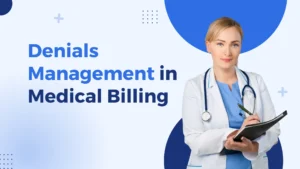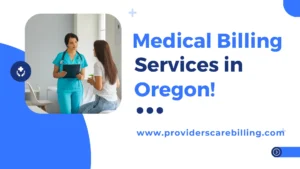Medical billing is a complex process that involves multiple layers of guidelines and regulations. Practitioners including physicians, dentists, and healthcare providers work hard to provide exceptional healthcare services to their patients while navigating the complexities of reimbursement policies and billing procedures. Medical billing errors can cause damage to both the healthcare providers and patients, which is why it is essential to overcome the top challenges faced in medical billing.
1. Insurance Verification
One of the common challenges in medical billing is the process of insurance verification. Many providers fail to verify insurance plans before providing services.
Insurance verification is essential since it guarantees that the patients’ insurance plans can cover the services provided. Without the verification process, the provider may not be paid for the services.
To overcome this challenge, healthcare providers should:
- Implement a reliable verification system.
- Check patients’ insurance plans before medical services.
- Verify the insurance plan’s benefits as well.
2. Complex Coding Procedures
Billing codes are critical in describing medical services provided to healthcare providers. Accurate coding ensures that healthcare providers receive maximum reimbursement for their services. Providers may face challenges in coding procedures due to the emergence of more complicated codes.
Healthcare Providers can overcome this challenge by:
- Staying updated on the latest coding processes and procedures.
- Utilizing outsourcing companies or consultants.
- Implementing coding practices that meet regulatory standards.
- Training codersand staff on the most advanced coding procedures.
3. Denials and Rejections
Denials and rejections are common challenges faced by healthcare providers in medical billing. Healthcare providers may receive denials from insurance companies for various reasons such as typographical errors, incorrect coding procedures, among others.
To overcome these challenges:
- Implement strategies aimed at reducing denials.
- Analyze denial reasons and trends.
- Incorporate denial management software.
- Update the billing processes periodically.
4. Regulatory Changes
Avoiding irregularities within the healthcare sector is essential to the success of any healthcare provider. Healthcare providers may face challenges due to the constant changes that are made concerning healthcare regulations. Changes to healthcare regulations may result in delayed payments, denied claims, and billing errors, ultimately impacting the revenue of the healthcare provider.
To overcome this challenge:
- Healthcare providers should stay apprised of policy changes or updates.
- Implement regular training programs and invest in certified electronic health record technology (CEHRT) to ensure the highest possible security and quality of service.
5. Cost Factors
The cost factors involved in medical billing have various complexities from software to staff salaries to regulatory compliance, associated overheads, and other expenses. Providers can face financial difficulties due to these cost factors.
To overcome these challenges:
- Providers need to identify cost factors.
- Implement cost-cutting measures and optimize workflow processes to reduce overhead expenses.
- Invest in billing automation software that can streamline billing procedures, ensure compliance with regulations and eradicate the chances of human error altogether.
6. Technology & Data Exchange Systems
Technology has revolutionized the way medical billing is conducted, but this has come with its own set of challenges. Data exchange systems often bring errors and delays in payment, resulting in increased customer frustration.
To overcome this challenge, healthcare professionals need to ensure:
- They understand each insurance carrier’s data transmission process.
- They should use the latest technology to streamline operations and reduce processing times so that customers receive timely reimbursement.
7. High Volume of Claims
One of the most significant issues is the high volume of claims. This is especially true in larger practices with a large number of patients.
To overcome this challenge, healthcare professionals can:
- Break up the daily tasks into manageable chunks.
- Analyze weekly reports to identify issues early and stay on top of their workloads.
- Automated software solutions and data analytics can not only help streamline workflows but reduce paperwork and simplify processes while improving accuracy and efficiency.
8. Patient Satisfaction & Quality Care
Patient satisfaction is an important element of healthcare as it is directly linked to patient loyalty and retaining a healthy patient base. One of the main challenges in medical billing is patient satisfaction, which is often linked to how patients are billed for services rendered.
To overcome this challenge, healthcare providers have to make sure that:
- Their billing processes are transparent and clear, and that they communicate effectively with patients before and after care.
- Patients must be informed of the cost of treatment and their financial responsibilities, and any inquiries or questions should be addressed promptly and accurately.
- Healthcare providers should also focus on providing quality care, such that patients feel valued and are more likely to come back in case of future medical needs.
9. Communication Barriers
Effective communication is key to successful medical billing. Communication barriers often arise due to the complexity of medical terms and procedures, language differences, and cultural differences, among others.
To overcome communication barriers, healthcare providers should:
- Hire multilingual staff or provide translation services to ensure that all patients can receive clear explanations of medical terms and procedures.
- Healthcare providers should train their front office staff on effective communication skills by emphasizing the importance of active listening, asking clear and concise questions, and employing empathetic language.
10. Reimbursements from Government Insurance
Insurance reimbursements are the primary revenue source for healthcare providers, and the government is a significant contributor. However, government insurance reimbursements can be a challenge due to complex regulations and different requirements for different types of insurance.
To overcome this challenge, healthcare providers should:
- Stay updated with the fast-changing regulations and policies of government insurance.
- The provider should have good knowledge of coding and billing rules and seek external assistance from experts in medical coding and billing, where necessary.
- Healthcare providers should track their claims and appeals, and ensure that they have provided all necessary documentation to support their claims when submitting to the government for reimbursement.
Bottom Line
At Providers Care Billing LLC, we understand that medical billing is a challenging but essential component of running a successful healthcare organisation. The issues outlined in this blog post can be difficult to tackle alone, which is why working with an experienced medical billing partner can be the key to overcoming them. Effective process re-engineering, optimizing claims management and streamlining payment processes are just some of the ways our dedicated professionals help medical practices reach their full potential with timely reimbursements and reduced costs. Whatever your unique challenges, Providers Care Billing LLC will work with you to deliver tailored solutions based on your specific needs. Get in touch today and experience our top-notch service.




